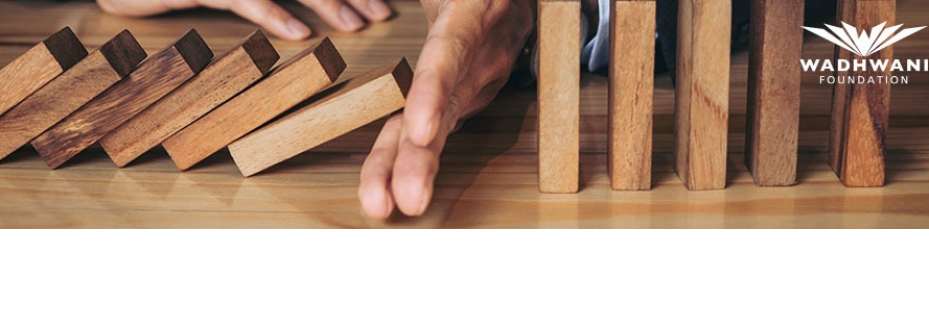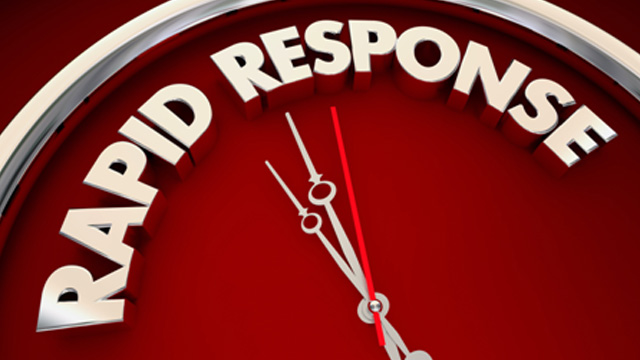

COVID-19 SME Forum
GlobalLinker and Wadhwani Advantage have together partnered with industry experts and leaders to help your business be better prepared

269 week ago — 6 min read
Covid-19 has significantly increased the odds of around 19-24 per cent of the 75 million SMEs in India being at the risk of insolvency or extinction. Around one-fourth or one-fifth of the balance sheet of the loans to SMEs are at the risk of being NPAs. Around 10-25 million jobs in SMEs are expected to be lost over a period of next 12-18 months, particularly the temporary staff in manufacturing companies.
Indian economy is expected to report the GDP growth close to 1-2 per cent by the end of 2020, with small businesses and poor people being the worst causalities. It is just not the irrational anxiety that is expressed in these dark predictions, but it is, indeed, a serious possibility. India is not the only country. The global economy is reset with a possible cost of Covid-19 anywhere between $5-10 trillion based on current estimates. As I observe Covid-19 and the mayhem it has caused globally, I reflect on several lessons that small businesses can learn from this epidemic. In this article, I present three of them.
The businesses must learn that while the Covid-19 brought the world to its knees, the societies that are less impacted have a better sensory perception system. The incidence in China made a few outside China, respond stronger.
SMEs that are proactive or respond fast will win. As Andy Grove said, ‘Only the paranoid will survive’. The businesses which can think and act with speed will survive better.
For example, the Bay Area in the US responded to the then invisible virus in their area much better by an assumption that they would be hit as badly. They prevented large-scale impending damage by assuming the worst scenario and took precautionary measures faster. They forced lockdowns earlier, prepared healthcare systems better and appear to have fared well.

SMEs that are proactive or respond fast will win. As Andy Grove said, ‘Only the paranoid will survive’. The businesses which can think and act with speed will survive better. Having said this, those inherently weak in their competitive position will find it difficult to survive regardless of speed.
Covid-19 has proved the virtue of containment. The governments which are able to contain the pandemic are those are able to separate severely affected zones from the healthy ones and also silence the communication (transfer of goods and people) between them. Businesses which cannot separate the bad from the good, will find it tough to contain the damage.
The challenge before most SMEs is to not only to find the bad elements but also to marginalise or eliminate them with clinical precision. In fact, these desperate times could be ideal to weed out the bad elements even if it means laying-off people who are weak links anyway. SMEs must remember that carrying them to ‘appear human’ could do more irreparable and perhaps irreversible harm to their organisations. The same principle applies to bad projects, bad loans and bad strategies.
Trauma arrives unannounced, always. The governments that have invested in preparing a large healthcare infrastructure to fight the invisible enemy like Covid-19, have done better than those which did not take the pandemic seriously. The state of preparedness by resourcing the system is critical to be able to respond fast and to contain the damage. Two top-most problem statements SMEs want to solve are ‘business continuity planning’ and the ‘clause of force majeure in their contracts’. The trauma caused by uncontrollable external factors like Covid-19 is forcing them to understand the new implications of the clause. Continuing business operations in a scenario that is increasingly unpredictable is clearly about resilience and adaptive postures that SMEs must prepare for.
The small business owners must build trauma management capabilities to be able to respond to a crisis with their inherent strength, resolve and resilience. SMEs must assume that traumas may become a regular occurrence, take a hard look at their survival chances, and separate emotions with business realities. They should not fall in the famous trap of ‘not giving up’. Hundreds of small businesses confuse between the spirit of entrepreneurship of not giving up and waste precious resources in prolonging an eventual death of their enterprise.
The resource-constrained small businesses must respond to trauma better by building the capability much before trauma hits them, to live another day. The bigger question is how could organisations build strong immunity to withstand the trauma? Our research indicates that the ability of the organisations to withstand traumas is largely correlated to their immunity and competitiveness. In summary, the three lessons that small businesses must learn are to be proactive and respond fast, contain by separating the bad from the good and build trauma management capabilities before it hits them.
We would love to hear from you!
Do reach out to us on this link or write to Samir Sathe if you have any questions or comments on the article.
Article source: Financial Express
Image source: shutterstock.com
To explore business opportunities, link with me by clicking on the 'Connect' button on my eBiz Card.
Disclaimer: The views and opinions expressed in this article are those of the author and do not necessarily reflect the views, official policy or position of GlobalLinker.
Posted by
Samir Sharad SatheHead Advantage Program in India, focused on helping small business owners accelerate their growth


COVID-19 SME Forum
GlobalLinker and Wadhwani Advantage have together partnered with industry experts and leaders to help your business be better prepared
Most read this week
Trending
What is BRC in Export Business?
Export Sector 2 week ago
Comments
Share this content
Please login or Register to join the discussion